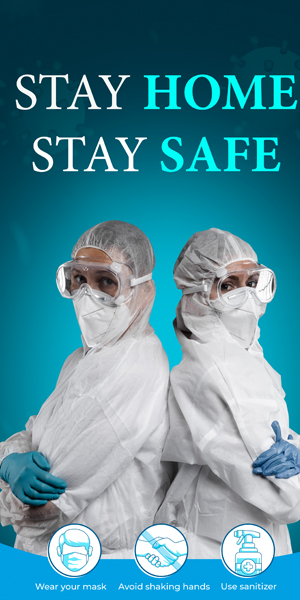Skin cancer is the most common form of cancer in the United States—and the good news is that it’s highly treatable when detected early. That’s why regular skin cancer screenings are an essential part of protecting your health. While many people assume they don’t need to worry unless they spend hours in the sun or have a family history of cancer, the truth is that skin cancer can affect anyone.
Whether you’re noticing something new on your skin or just haven’t had a professional check in a while, staying vigilant can make all the difference. Here are eight signs it’s time to schedule a skin cancer screening—and why doing so could be a lifesaving decision.
1. You’ve Noticed a New Mole or Spot
New moles or spots on your skin—especially those that appear after the age of 30—should always be monitored closely. While many are harmless, some could be early signs of melanoma or other types of skin cancer.
If a mole appears out of nowhere or looks different from others on your body (also known as the “ugly duckling” sign), it’s a good idea to have it checked by a professional. Catching something unusual early could prevent more serious issues down the line.
2. You Have a Mole That’s Changing in Size, Shape, or Color
A key warning sign of potential skin cancer is change. If an existing mole begins to grow, develop irregular borders, darken, or take on multiple colors, it warrants a closer look. These changes can occur slowly or quickly and are often the first visual cue that something may be wrong.
Keep the ABCDEs of melanoma in mind:
- Asymmetry
- Border irregularity
- Color variation
- Diameter larger than 6mm
- Evolving over time
Even one of these signs is reason enough to seek out a medical dermatologist service.
3. A Spot Is Itchy, Bleeding, or Not Healing
Skin that becomes persistently itchy, scabs over, or starts bleeding without a clear cause should be taken seriously. Many people dismiss these issues as bug bites, scratches, or dry patches—but if the area doesn’t heal after a few weeks, it could be a more serious condition like basal cell carcinoma or squamous cell carcinoma.
Lesions that crust, ooze, or form a sore that won’t close should be evaluated as soon as possible.
4. You Have a History of Severe Sunburns or Tanning Bed Use
If you’ve had multiple blistering sunburns in your lifetime—especially as a child or teenager—you carry a higher risk for developing skin cancer. The same goes for anyone who’s used tanning beds, which are classified as carcinogenic and can significantly increase your chances of melanoma.
Even if your skin looks fine now, prior UV damage may take years to develop into visible signs of cancer. Scheduling a routine skin check ensures anything abnormal can be spotted early.
5. You Have a Personal or Family History of Skin Cancer
Genetics can play a role in your risk. If you or someone in your immediate family has had skin cancer in the past, it’s crucial to remain proactive with screenings.
Some types of skin cancer, particularly melanoma, have hereditary links. A professional screening can establish a baseline for your skin health and help monitor any changes over time.
6. You Have Light Skin, Hair, and Eyes
People with fair skin, blond or red hair, and blue or green eyes are generally more susceptible to sun damage and skin cancer due to lower melanin levels. While anyone can develop skin cancer, those with lighter complexions are often at greater risk for UV-related damage—even after short sun exposure.
If this sounds like you and you haven’t had your skin checked recently, now’s the time.
7. You Spend a Lot of Time Outdoors
Whether you’re a golfer, runner, gardener, or someone who works outside, consistent exposure to the sun increases your cumulative risk of skin cancer. Even with diligent SPF use, UV rays can cause long-term damage that builds up over time.
If your lifestyle involves frequent sun exposure, an annual skin cancer screening should be a non-negotiable part of your health routine.
8. It’s Been Over a Year Since Your Last Skin Check
Sometimes the biggest sign you need a screening is simply the passage of time. If it’s been more than 12 months since your last full-body skin exam, consider this your friendly reminder to book an appointment.
Like dental cleanings and physicals, annual skin screenings are preventive care that can make a big difference. Early detection is often the key to successful treatment, and a quick appointment could save your life.
When it comes to your skin, being proactive is always better than being reactive. Skin cancer doesn’t always announce itself with dramatic symptoms—often, it begins as a subtle change that only a trained eye would catch.
If any of the signs above sound familiar, don’t delay. Booking a screening with a medical dermatologist service ensures you’re taking the right steps to protect your skin and your overall health.
Your skin is your body’s largest organ—treat it with the care and attention it deserves.








Leave a Reply